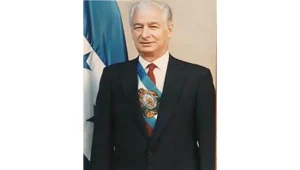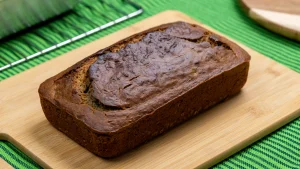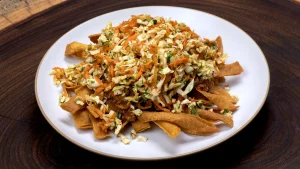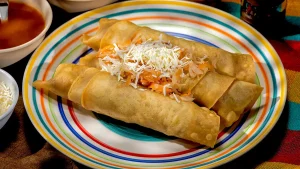Biography of Ramón Villeda Morales
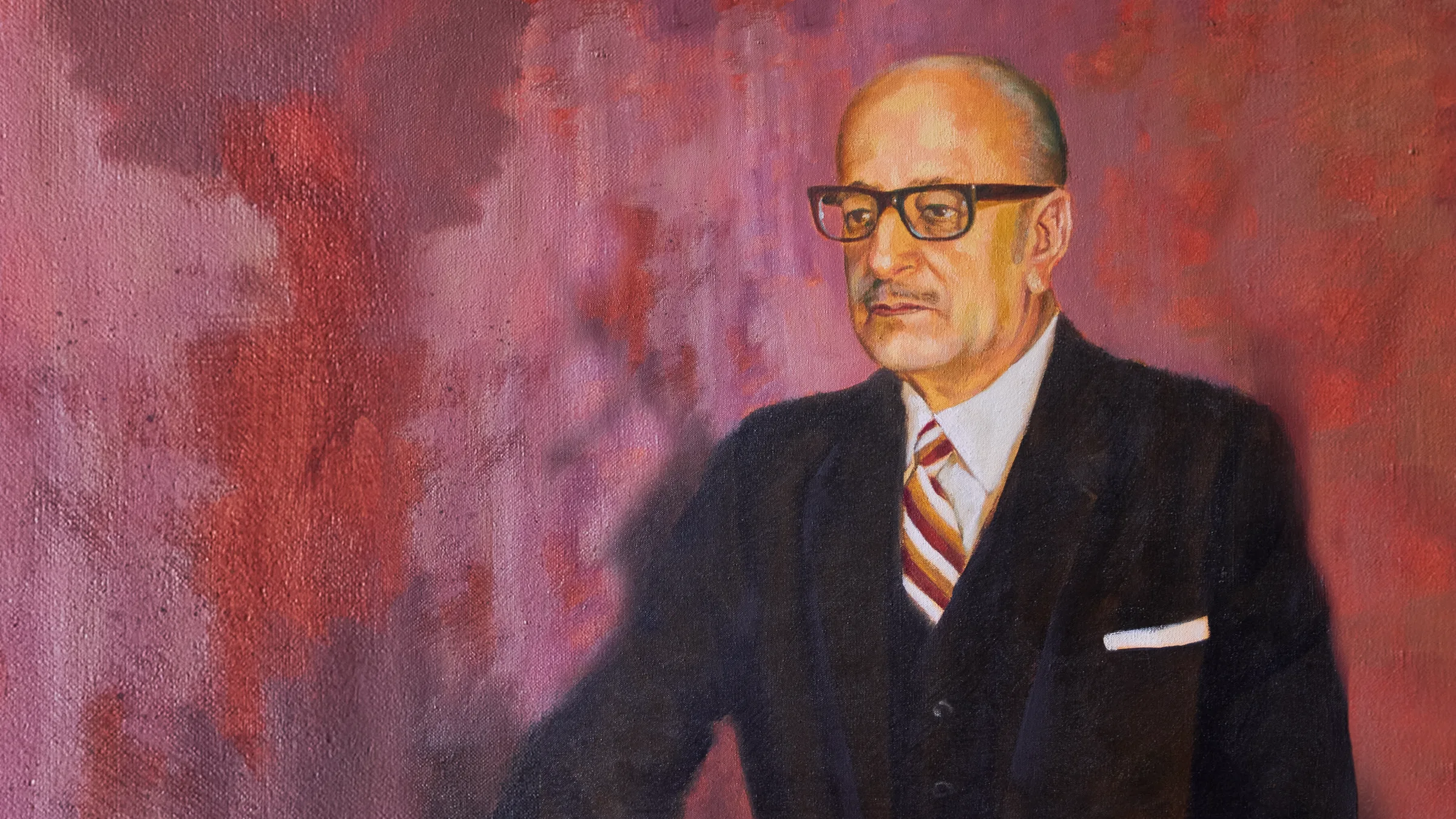
José Ramón Adolfo Villeda Morales was born in Ocotepeque in 1909, his parents were José María Villeda and Dolores Morales. Constitutional President of Honduras (1957-1963). He died on October 8, 1971 in New York, representing Honduras before the UN.
Personal life and studies
In elementary school he was an outstanding student . In his high school studies he was also an outstanding student, according to the testimonial of the qualifications that were read in a public act, when he visited Guatemala in his capacity as Constitutional President of Honduras.
Drawn to medical sciences, he has a brilliant performance as a college student; He directs the magazine «Juventud Médica Hondureña», founds and directs the newspaper «El Universitario» with other colleagues, is elected President of the Federation of University Students, and represents Honduran university youth abroad.
After passing his studies with high marks and carrying out the regulatory practices in all clinical services, he opts for the title of Doctor of Medicine and Surgery in Guatemala . He begins his professional life in Santa Rosa de Copán, where he provides, ad-honorem , his services to the Hospital de Occidente.
On April 25, 1936, he married Professor Alejandrina Bermúdez Milla (First President of the Federation of Women’s Associations of Honduras), in a religious service celebrated by Bishop Emilio Morales Roque; The godparents of the couple were Doctor and General Tiburcio Carias Andino and his wife Elena de Carías, the act was also attended by Doctor Juan Manuel Gálvez and his wife Laura Barnes de Gálvez, Salvador Aguirre and his wife Mrs. Raquel de Aguirre , among other social and political personalities of Honduras. From this marriage union six children were born, all boys: Ramón Adolfo, Rubén Antonio, Alejandro, Mauricio, Leonardo and Juan Carlos.
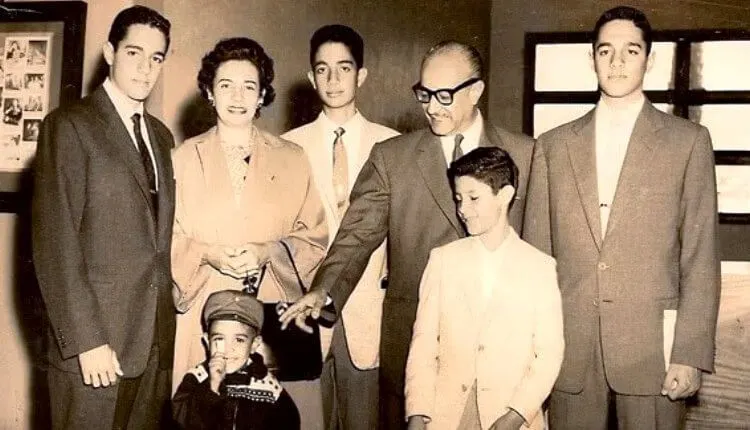
Work history
In 1937 one of the most important scientific institutions in Europe, the traditional Humboldt University of Berlin in Berlin, Germany; grants him a scholarship for specialization studies, where he obtains a specialty in pediatrics. His experience in Germany will influence the social and health aspect that led him to make great reforms in those fields during his presidency.
The permanence in Europe of Villeda Morales, on the eve of the Second World War, marks not only a time of accomplishments and conquests in medical terms, but also a deep concern with the culture and political situation of the old world.
Presidency of the Honduran Medical College
In 1940 he set up his medical office in Tegucigalpa and in a short time he was one of the best known and most popular professionals in all social classes. He is then elected President of the Honduran Medical Association.
Organizes the first Clinic of the Honduran Red Cross, where thousands of poor people receive free medical attention and treatment, and later, from the Presidency of the Republic, organizes the Peripheral Clinics that from the four cardinal points of Tegucigalpa, provide assistance to the population of scarce resources.
Political career
It can be said that his political career began from the beginning of his civic life. In 1948 he mobilized the Honduran youth and devoted himself to the reorganization of the Liberal Party, and over the years he managed to transform the traditional organization into one of the most progressive currents of the Isthmus.
Presidency of the Supreme Liberal Council
A year later he assumes the Presidency of the Liberal Supreme Council; he intensifies the work of reorganization on a national plan; founded the newspaper «El Pueblo», at the service of the democratic forces of the Honduran nation; it heats up the organization of economic fronts to give the Party a patrimony; establishes relations with political parties of ideological affinity abroad, and manages to unify the scattered forces of liberalism with emotion and a high spirit of struggle.
In 1948 he began the reorganization of the Liberal Party, dismantled as a result of the repression imposed by the regime of Tiburcio Carías Andino and the prolonged exile of its main leaders. In 1949 he assumed the presidency of the Supreme Liberal Council, occupying the leadership of the party and replacing José A. Zúñiga Huete, who returned to Mexico.
In May 1953, he presented two documents of great importance to the Liberal Party Convention: the new Statute and the revamped Ideological Program. Villeda Morales introduces a new fighting tactic mobilizing the masses. In his devastating oratory, but at the same time conciliatory, the words of encouragement are heard at the end of each speech: Always Forward, not a Step Back!
1954 election
In April 1954, the Liberal Convention proclaimed the candidacy of Ramón Villeda Morales for the Presidency of the Republic. He was victorious in the elections held that year, although he was unable to become president as he was not ratified by members of Congress.
It was the beginning of the fifties, Villeda Morales was accompanied by new fighting figures and brilliant professionals among whom we remember Modesto Rodas Alvarado, Andrés Alvarado Puerto, Miguel Alfonso Cubero Dacosta, Miguel Rafael Muñoz, Francisco Milla Bermúdez, Jorge Bueso Arias, Oscar A. Flores, Roberto Martínez Ordóñez, Oscar Mejía Arellano, Orlando Gómez Cisneros, Edas Maradiaga, Ezequiel Escoto, Federico Mejía Rodezno, Roberto Suazo Córdova, Sixto Quezada, Fernando Villar, Rogelio Martínez Agustines, Juan Miguel Mejía, labor leaders, women fighters who broke the barriers of exclusion and finally, a different leadership in the political life of the country.
Dr. Villeda Morales presented his presidential candidacy under the banner of the Liberal Party and that political institution entrusted him with the presidential candidacy for the 1954 elections, achieving a slight advantage over his contenders, Dr. and General Tiburcio Carías Andino of the National Party. and Gen. and Ing. Abraham Williams Calderón.
But as the 1937 Constitution stipulated that the winner should have an absolute majority, a constitutional crisis occurred that caused the breakdown of the constitutional order and gave rise to the de facto government of Don Julio Lozano Díaz.
In collaboration with those closest to them, they undertook a fierce opposition to the Lozanista regime, failing attempts to overthrow it, such as the one that occurred on August 1, 1955, until achieving instability that led to the military action of October 21, 1956.
Villeda had to suffer exile by Julio Lozano for supporting a strike of banana workers against the United Fruit Company, which occurred in July 1956. That same year Lozano was overthrown and Villeda was able to return to his country. and be appointed ambassador to the United States.
The Armed Forces promised in their proclamation to return institutionality to the country and set for November 1957 the call for elections for a National Constituent Assembly, which issued the new constitution of 1957 and whose representatives made the decision to elect Dr. Ramón Villeda Morales as Constitutional President of the Republic
Constitutional President of the Republic of Honduras
Villeda Morales obtains a resounding victory in the month of October, an absolute victory, which was made to appear as relative. Villeda Morales was expelled through a coup from the country and transferred to Costa Rica.
On August 26, 1957, after the overthrow of the dictatorship, he returned to his homeland, being tremendously received in the city of San Pedro Sula by a crowd of 100,000 people. Now begins one of the briefest and most dynamic political campaigns during which Villeda Morales tours the country accompanied by the most outstanding liberals.
On December 21, 1957, before the representatives of 40 nations and an incalculable crowd, Ramón Villeda Morales began his presidential term, by the will of the people.
Villeda Morales is 49 years old when he is elected President of Honduras for the second time and is at the height of his popularity and of his creative forces as an intellectual and as a politician.
The inauguration took place in the National Stadium of Tegucigalpa with the presence of Héctor Caraccioli Moncada and Oswaldo López Arellano, taking the promise of law and imposing the presidential sash on him, Dr. Modesto Rodas Alvarado in his capacity as President of the National Congress.
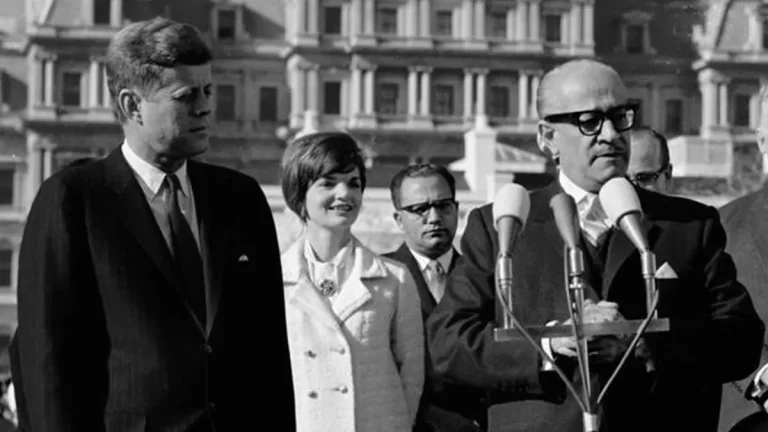
Achievements of his government
Under his mandate, in which he was popularly known by the nickname of little bird , social security was established for Honduran workers and the development of new labor legislation was sponsored. Villeda Morales launched, with the help of the «Alliance for Progress», promoted by John F. Kennedy, a series of reforms and managed to institutionalize a state apparatus of public services related to education, health and housing.
- An advanced Constitution of Honduras of 1957 with individual and social guarantees, including the basic principle of the democratic regime of alternation in the exercise of power.
- Work code.
- Law of Emission of Thought.
- Agrarian Reform Law.
- National Board of Social Welfare.
- Homes for Minors.
- Children care centers.
- Malaria eradication.
- Honduran Institute of Social Security.
- Maternal and Child Hospital of Guatemala.
- Hospitals and Health Centers in different regions of the country.
- Solution of the border dispute between Honduras and Nicaragua, where Honduras recovered 8,500 km² in the Honduran Mosquitia area.
- Industrial Development Law.
- Reincorporation of the National Railway.
- Hydroelectric System Yojoa – Rio Lindo.
- Rehabilitation Institute.
- Construction of schools throughout the national territory.
- Construction of the Western Highway.
- Studies for the rectification and construction of the road to San Pedro Sula – El Progreso – Tela – La Ceiba, which includes 83 bridges.
- Implementation of the new telephone system in the cities of Tegucigalpa and San Pedro Sula.
- Construction of social housing: Colonia Kennedy, Colonia 21 de Octubre, Colonia Fraternidad.
- Monetary stability and free convertibility during his presidential term.
- Creation of the Civil Guard.
1963 Coup
Due to the reforms carried out in favor of the workers and despite being supported by Kennedy, he was the victim of a coup d’état, sponsored by a group of Honduran soldiers in collusion with politicians and landowners in the country. That began a period of Military Juntas in Honduras.
His mandate was to last until December 21, 1963, but a few days before the end of the mandate, a coup led by Colonel López Arellano removed him from power on October 3, 1963, again forcing him to seek asylum in Costa Rica. .
A few days before the end of his mandate, the virtual winner of the elections of October 13, 1963 was the also liberal Dr. Modesto Rodas Alvarado, who was targeted by the coup because his ideology was not to the liking of the transnational banana companies and a business sector that feared the growing strength of union organizations.
In 1965, he ran again unsuccessfully for the elections, which were manipulated by the military junta presided over by López Arellano.
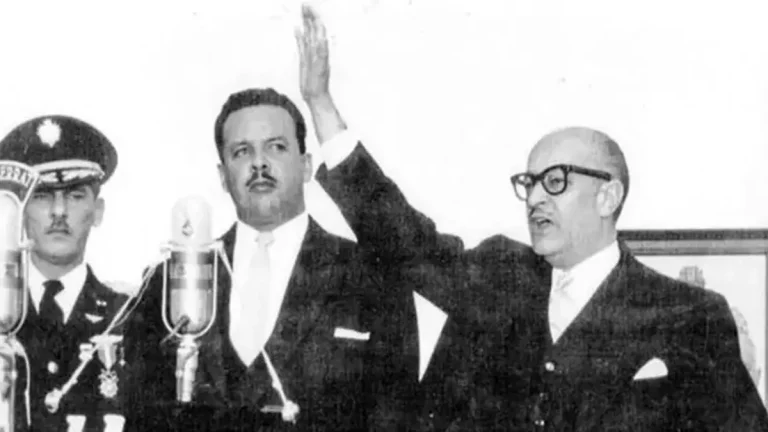
Coup attempt
On July 12, 1959, the ambitious Infantry Colonel, Armando Velásquez Cerrato, leader of the so-called July 12 Military Movement, with the support of Nicaraguan President Luis Somoza D., initiates a bloody coup attempt against the government. of Dr. Ramón Villeda Morales, who fails as he does not have the full support of the Armed Forces.
Previously, on May 26, 1957, Velásquez Cerrato, a graduate of a Mexican military academy and incorporated into the Honduran Army in 1941, planned another coup against the Military Junta (October 21, 1956 – December 21, 1957) made up of the Infantry General, Roque J. Rodríguez, Aviation Colonel, Héctor Caraccioli M. and Infantry Major, Roberto Gálvez Barnes, an attempt that also failed.
Representative of Honduras to the UN
Recognizing his ability and patriotism to defend the sovereign interests of Honduras, the bipartisan government of Dr. Ramón Ernesto Cruz appointed him permanent ambassador of our country to the United Nations.
On September 20, 1971, he presented his Credential Letter to the Secretary General of the United Nations Organization (UN) as president of the Mission of Permanent Representatives of Honduras before the world organization.
Death of Ramon Villeda Morales
Villeda Morales died on October 8, 1971, at the age of 63, when he was serving as president of the Permanent Mission of Honduras to the United Nations Organization in New York.
His mortal remains were taken to Guatemala on a US Air Force plane and from Guatemala to Honduras by the Honduran Air Force.
The Honduran people, as a sign of gratitude for his civic-political work, gave him massive funeral honors. Breaking official protocol, they snatched and carried his coffin from the Tegucigalpa Airport to the headquarters of his Party, and from there, to his house on the outskirts of the city.
The life of Ramón Villeda Morales is not just a life of struggles and victories alternated with defeats and suffering. First of all, it is a life dedicated to two great causes: man and democracy.
Honors
Ramón Villeda Morales received different honors among them:
- The international airport of the city of San Pedro Sula is known as “Ramón Villeda Morales” Airport.
Publications
He published many works on Social Medicine such as:
- Breastfeeding
- The illegitimate birth
- The social problem of food in Honduras
- The social problem of alcoholism in Honduras
- The social problem of medicine in Honduras
- Social security in Honduras
- School vacation colonies for the integration of the child population in Central America
- Infant mortality in Comayagüela, its causes and ways to combat them, among others.
He also wrote the book El Pensamiento vivo de Villeda Morales
Bibliography
- Argueta, Mario (2009), Ramón Villeda Morales: luces y sombras de una primavera política, Tegucigalpa, Honduras: Editorial Guaymuras.
- Baciu, Stefan (1970), Ramón Villeda Morales, ciudadano de América.
- Natalini de Castro, Stefanía (1985), Significado histórico del gobierno del Dr. Ramón Villeda Morales, Tegucigalpa, Honduras : Universidad Nacional Autónoma de Honduras, Editorial Universitaria.
- Villeda Morales, Ramón(2007), El pensamiento vivo de Villeda Morales, Tegucigalpa, Honduras, Aristón.
- Paz Barnica, Edgardo (1972), Villeda Morales el imperativo categórico, Consejo Central Ejecutivo del Partido Liberal de Honduras.
